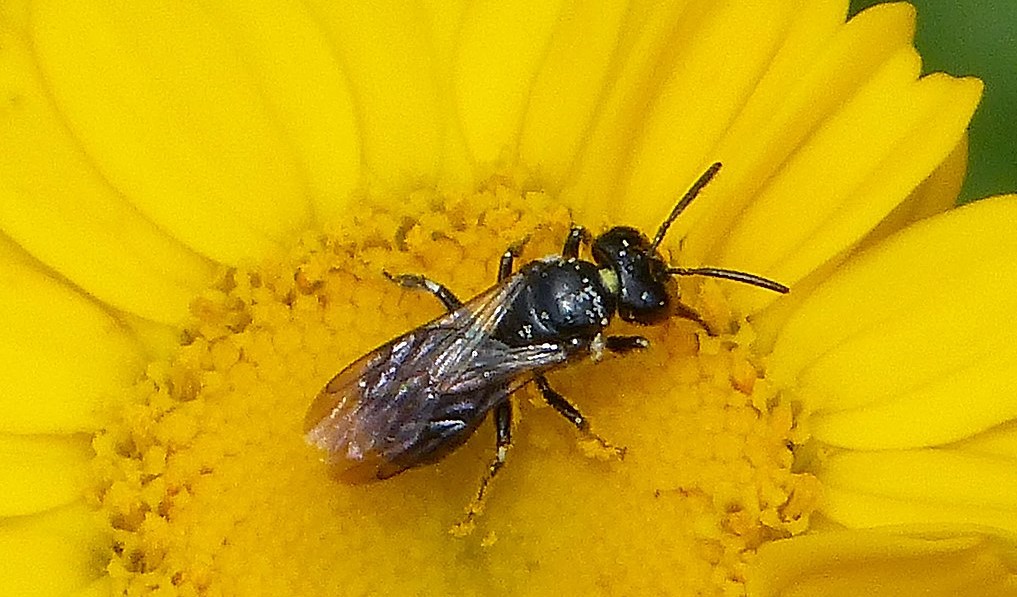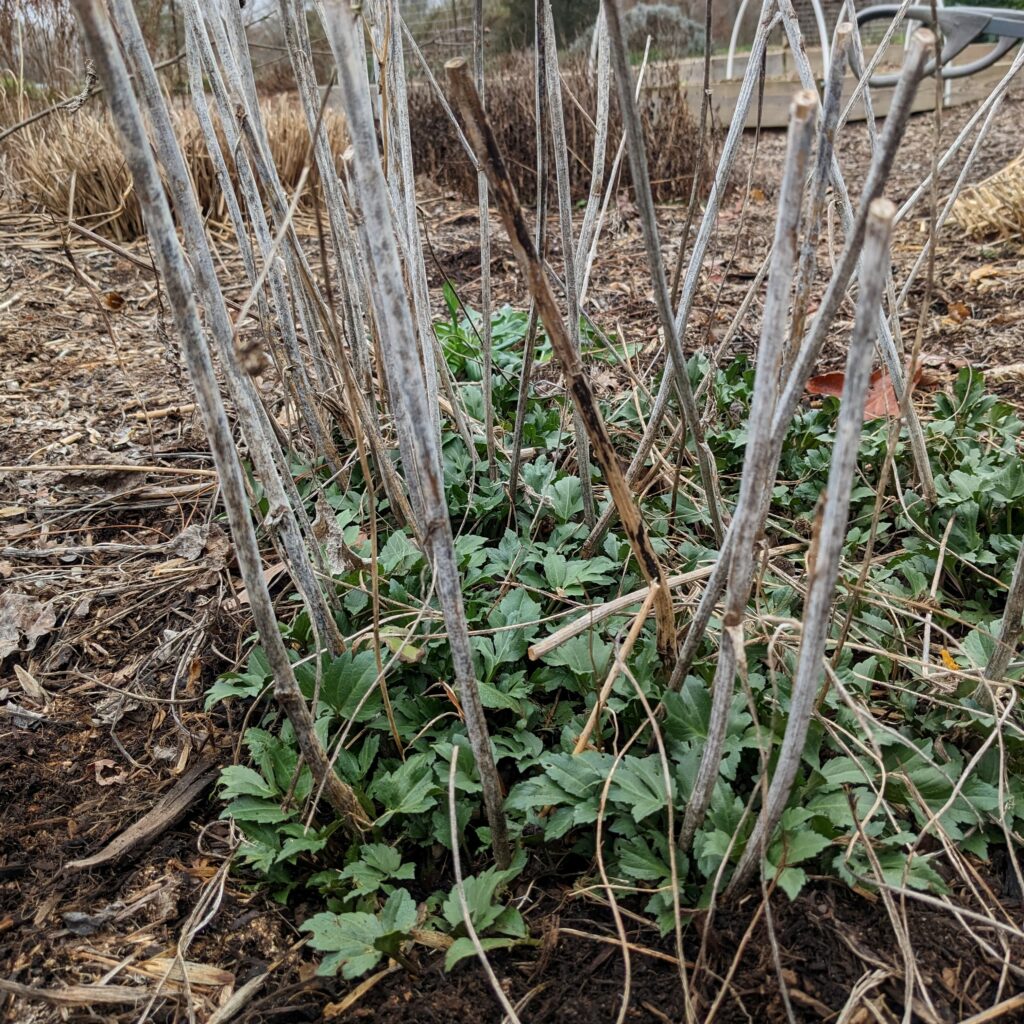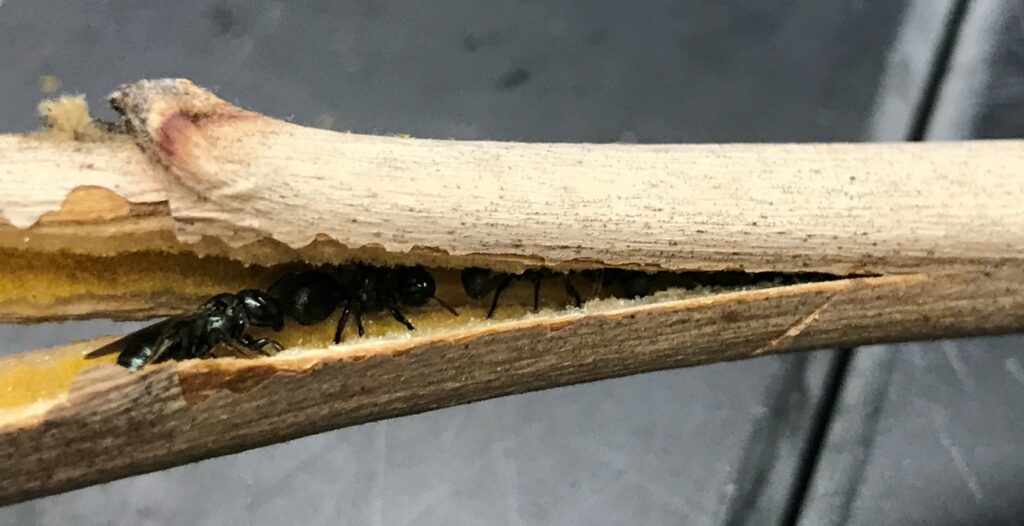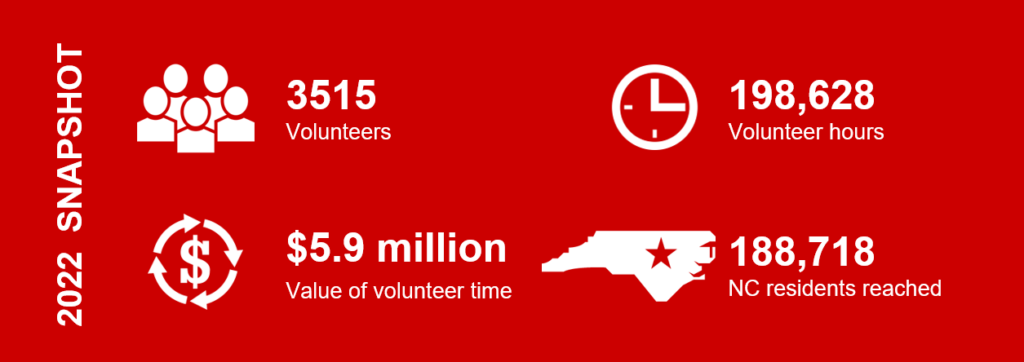Growing Knowledge to Protect Pollinators
go.ncsu.edu/readext?921783
en Español / em Português
El inglés es el idioma de control de esta página. En la medida en que haya algún conflicto entre la traducción al inglés y la traducción, el inglés prevalece.
Al hacer clic en el enlace de traducción se activa un servicio de traducción gratuito para convertir la página al español. Al igual que con cualquier traducción por Internet, la conversión no es sensible al contexto y puede que no traduzca el texto en su significado original. NC State Extension no garantiza la exactitud del texto traducido. Por favor, tenga en cuenta que algunas aplicaciones y/o servicios pueden no funcionar como se espera cuando se traducen.
Português
Inglês é o idioma de controle desta página. Na medida que haja algum conflito entre o texto original em Inglês e a tradução, o Inglês prevalece.
Ao clicar no link de tradução, um serviço gratuito de tradução será ativado para converter a página para o Português. Como em qualquer tradução pela internet, a conversão não é sensivel ao contexto e pode não ocorrer a tradução para o significado orginal. O serviço de Extensão da Carolina do Norte (NC State Extension) não garante a exatidão do texto traduzido. Por favor, observe que algumas funções ou serviços podem não funcionar como esperado após a tradução.
English
English is the controlling language of this page. To the extent there is any conflict between the English text and the translation, English controls.
Clicking on the translation link activates a free translation service to convert the page to Spanish. As with any Internet translation, the conversion is not context-sensitive and may not translate the text to its original meaning. NC State Extension does not guarantee the accuracy of the translated text. Please note that some applications and/or services may not function as expected when translated.
Collapse ▲
Small carpenter bees, Ceratina cucurbitina, are among the pollinator species that may use perennial stems for habitat. Image by gailhampshire, CC BY 2.0
Volunteers with the NC State Extension Master Gardener℠ program help grow knowledge of sustainable gardening practices by taking part in citizen science and research projects.
An ongoing research project is investigating how to improve habitat for pollinators in residential landscapes. As some pollinators build nests for their offspring in hollow stems, Master Gardener℠ volunteers are helping determine if changing the way we manage herbaceous perennials in the landscape can provide more of this nesting habitat.
According to project leaders Elsa Youngsteadt and Hannah Levenson, there is currently limited understanding of the best management practices for pollinator overwintering habitat. Through this project, they aim to develop a greater understanding of how plant management practices can maximize the ability of residential landscapes to provide habitat, as well as generate a list of plant species for gardens and ornamental plantings that pollinators utilize.

If managed with pollinators in mind, last season’s flowering stems can provide overwintering habitat for some species. Image by Charlotte Glen, NC State.
They are doing this by identifying the number, identity, and emergence time of pollinators from perennial stems collected by Master Gardener volunteers in their own landscapes or Extension demonstration gardens. Instead of cutting perennial stems all the way back in fall, which is the common practice, Master Gardener volunteers are leaving a few feet of stem standing above ground level through the winter and into the next growing season. They will then collect these old stems across four time points and send them to NC State where Elsa and Hannah will look for pollinators and identify any they find.
An initial pilot of this study has yielded promising results. Species that were found in stems from the pilot include Ceratina bees, also known as small carpenter bees, leafcutter bees, potter wasps, and earwigs. This year, the study is expanding to include additional sites in Chatham, Chowan, Perquimans, Cumberland, Forsyth, Lee, Vance, and Wilson counties. Look for recommendations based on the findings in future Extension publications, workshops, and plant profiles on the Extension Gardener Plant Toolbox.

Pollinator species found nesting in stems during the study pilot include Ceratina bees. Image by Elsa Youngsteadt, NC State.
This project is a partnership between NC State faculty in the departments of Horticultural Science, Entomology & Plant Pathology, and Applied Ecology, Master Gardener volunteers, and Extension agents based in N.C. Cooperative Extension centers in Chatham, Chowan, Perquimans, Cumberland, Forsyth, Lee, Vance, and Wilson counties. Many thanks to Leslie Rose, Extension horticulture agent in Forsyth County, for coordinating communications for this project.

The Extension Master Gardener℠ program is a statewide network of volunteers and Extension educators working in N.C. Cooperative Extension county centers and on NC State campus. Through education and outreach, we connect people with the benefits of gardening and empower North Carolinians to cultivate healthy plants, landscapes, ecosystems, and communities.
Explore stories from our 2022 Annual Report, which celebrates our work to help North Carolinians learn and grow.
Join, support, or connect with Extension Master Gardener volunteers in your community.


